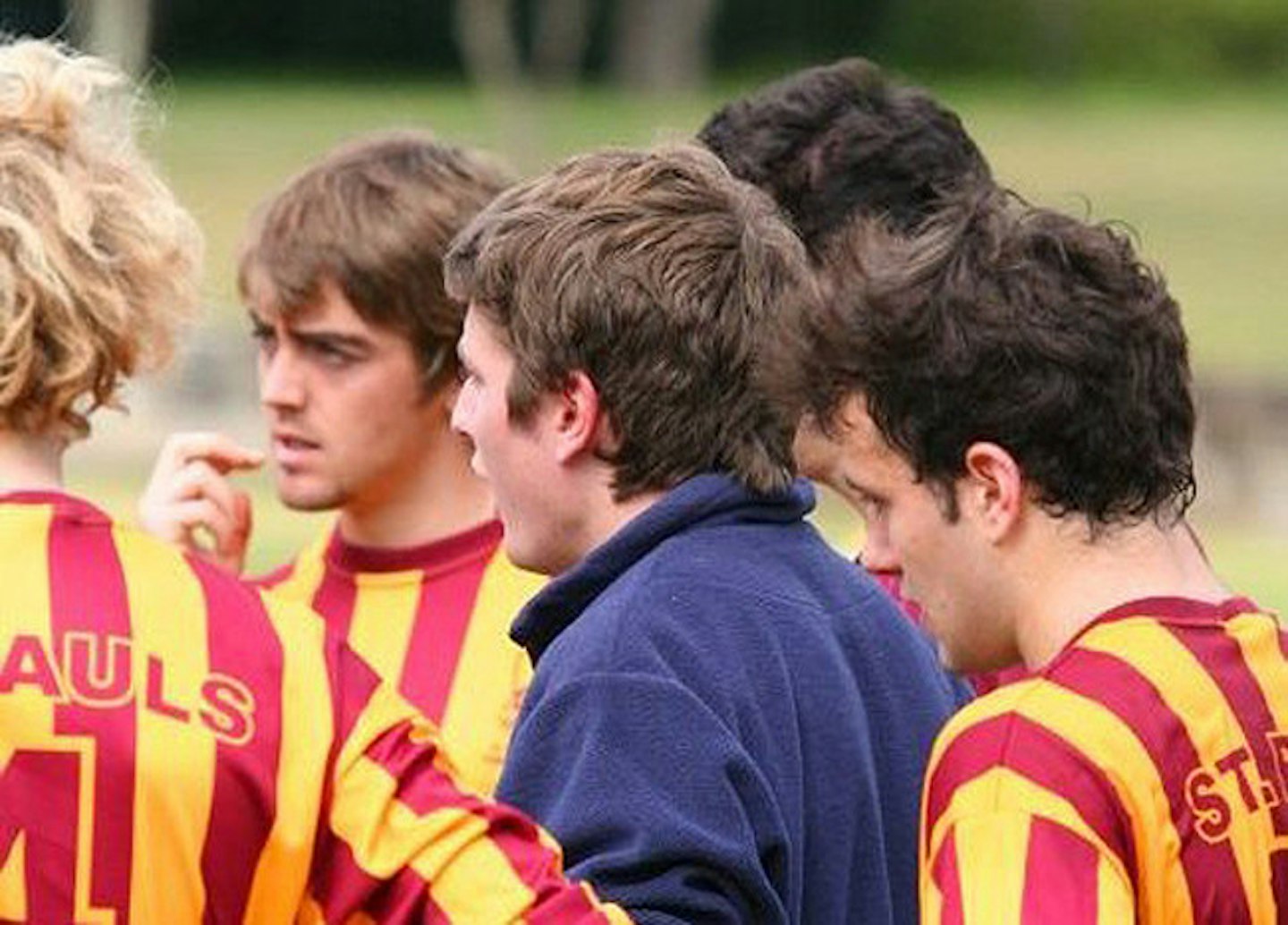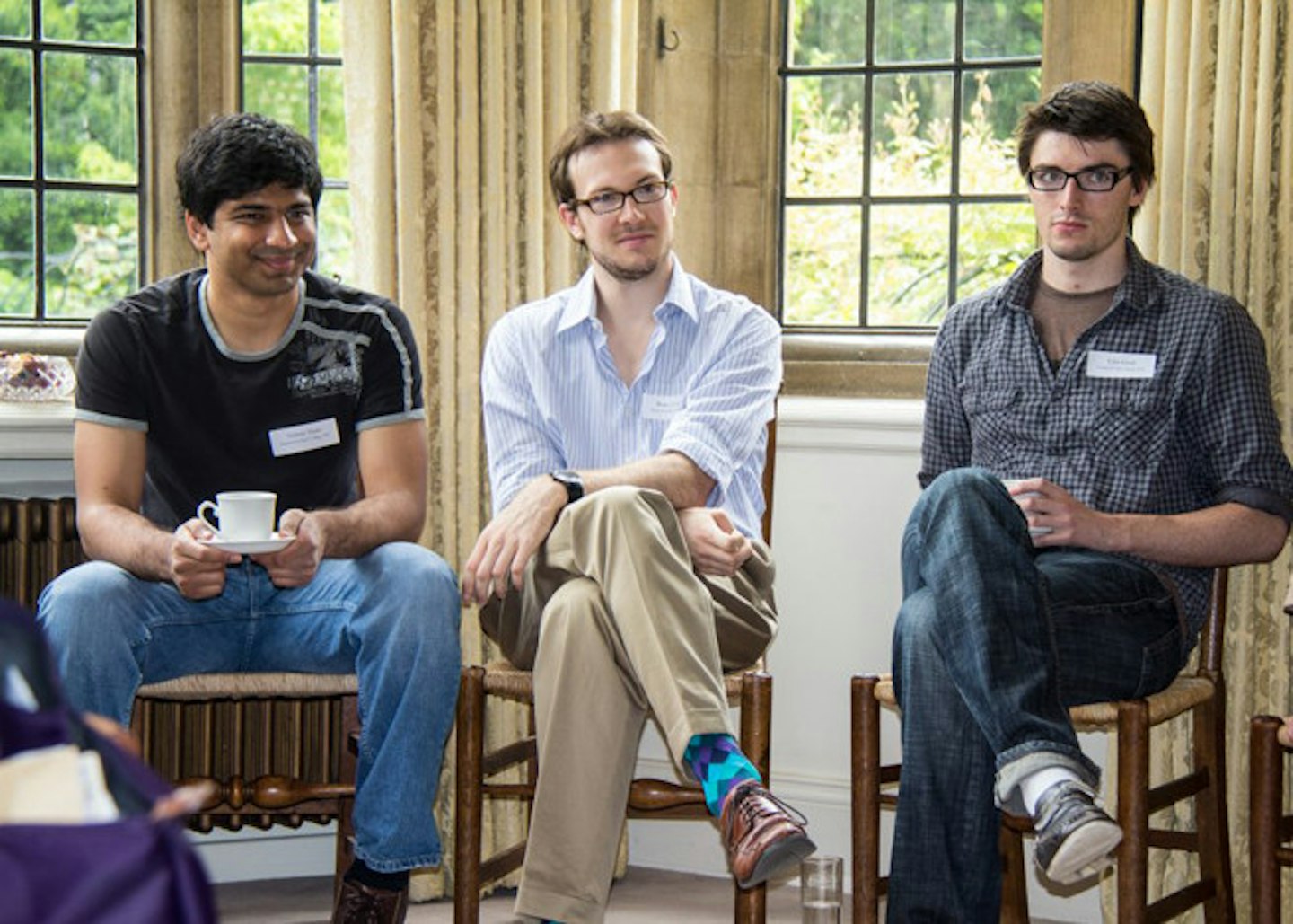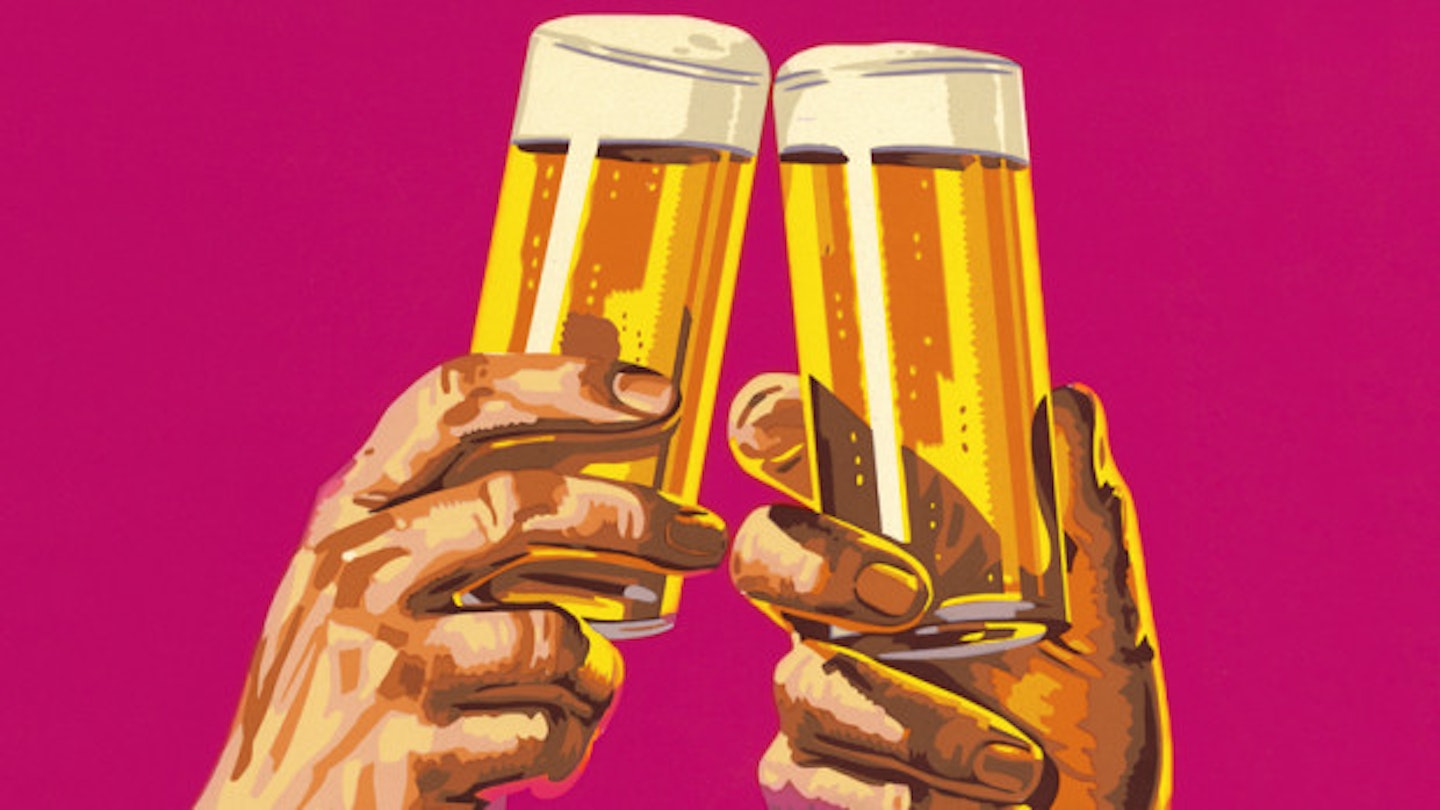Earlier this year, I went to a screening of The Punk Singer at the ICA. The film is about Kathleen Hanna, lead singer of Bikini Kill and Le Tigre and a defining figure in the 1990s Riot Grrrl movement. I knew a bit about the movement and I knew some of her music, but mostly, Hanna occupied a place in my conscience as a hero to my girlfriend and some of my female friends.
I then realised that somewhere buried deep inside, I felt that Hanna was all a bit too much, that she didn’t need to be so confrontational, so in your face about her feminism and that, hey, hadn’t the battle kind of already been won?
I would never have admitted that previously, but watching the film had a profound effect on me, and I realised that however right-on and feminist I thought I was, I had more or less put Kathleen Hanna into a box marked, ‘Women doing women’s things’.
I felt like a lumbering sexist. The kind of guy who was the subject of Bikini Kill’s White Boy: ‘I’m so sorry if I’m alienating some of you / your whole fucking culture alienates me’.
Often, when you feel defensive or uncomfortable about something, it’s you that needs to change. And so I thought about this while sitting in a small room this week at Merton College, Oxford, listening to 12 university sportsmen talking about ‘positive masculinity’.

The men, and me, were there for an hour-long session run by the Good Lad Workshop, which was started about 18 months ago by some Oxford students, with the aim of helping men deal with ‘complex gender situations and become agents of positive change within their social circles and broader communities’.
READ MORE: An Open Letter To ‘Women Who Don’t Need Feminism. Here’s A Clue, You Do’
The would-be ‘good lads’ sit in a circle and, after it’s been established that no-one thinks a guy grabbing ‘an unknown girl’s arse in a club’ is OK, they’re told that a 2010 survey by the National Union of Students found that one in seven female students had been the victim of a serious physical or sexual assault.
The statistic is shocking and it shocks the group. And while you might imagine that Oxford, an ancient seat of learning, would float high above such things, its entitlements and its traditions mean that it has become a battleground in the fight against the dangerous side of masculinity.
The lads at this seminar know that. Along with places like the Bullingdon Club, the sports teams they represent are a big part of this. Last year, Pembroke College’s rugby club sent out an email with the subject line ‘FREE PUSSY’, which told its players to go out, find a fresher they liked, and spike her drink.
‘I know that every fresher at Pembroke is quaking in their boots thinking that they might be picked as our date’, was the email’s sinister cry of masculine affirmation. A few years before that, the university-wide under-21 rugby team held a Bring A Fit Jew party.
The Good Lad workshop hopes to steer men in another direction, and it hopes to do that by running them through a series of scenarios. Today, the scenarios look at sexual harassment, ‘banter with the boys’, sex and consent, and team initiation ceremonies.
In the banter scenario, the group is asked to imagine that they are a few drinks into a night out, on their way to a club with the rest of their team. A girl walks past them alone and one of the team says, ‘Why are you going that way, the party’s this way?’ They all laugh and then, as she walks off, another guy calls her a ‘frigid bitch’. Half the team laugh and no-one calls him out for being a sexist prick.

Back in the workshop, the real-life sportsmen have to respond to this scenario. Everyone finds the ‘frigid bitch’ line awful, but the group isn’t sure how it should be dealt with. Someone suggests going after the woman to apologise. Someone else suggest that this might seem aggressive. A few people say that the offender should be quietly taken aside and told that what he’d said was disrespectful. One participant, speaking the language of gender discourse to a fluent level, says that the comment reveals an ‘inherently problematic team that hasn’t dealt with gender inequality’.
Later in the discussion, Dave Llewellyn, one of the co-founders of Good Lad, raises the issue of the ‘party’s this way’ comment and compares it to the ‘10 Hours of Walking in NYC as a Woman’ video. Everyone can see that calling a woman a ‘frigid bitch’ is wrong, but the first comment is where the nuanced debate lies.
Is the man merely being spontaneous, engaging in some natural human-to-human contact? Or is he intimidating a single woman in order to make his mates laugh?
The Good Lad workshop comes down, of course, in the ballpark of the latter. They hope that by running through these scenarios in the safety of a comfortably furnished room, the young men who come to them will be shown the potential harm and discomfort their behaviour could cause. Realisations gained in the workshops can then be put into place in real life so that, even with seven beers and half a gram inside them, there will be a structure in place that keeps the beast from possessing the man.
The men that are part of the The Good Lad contingent are all nice, intelligent people and while their workshops have been almost entirely confined to Oxford’s various sports teams, they are looking to spread out across the country, as well as to go into secondary schools and places of work. They are mostly sportsmen themselves and so, at Oxford at least, they can talk to the jocks as peers.
READ MORE: Why I Stopped Dapper Laughs Playing At My Student Union[
](https://thedebrief.co.uk/2014/09/banter-is-just-a-way-of-silencing-rape-culture-on-student-campuses)
The Good Lad seems to be a constructive solution to a certain problem but it is also couched in the language of that problem. The title – Good Lad – is infantilising in and of itself – be a good lad and you’ll get treats, it seems to say – but it is also just a title.
But after the workshop, Dave Llewellyn told me that he loved being a guy and that he wasn’t interested in neutering men. He and his colleagues are taking a softly, considered approach and they’ve identified something that, as we all know, needs to be addressed.
Still, as I looked across Christ Church Meadow, the cattle grazing peacefully in the sun, I longed for some of Kathleen Hanna’s militant confidence. Find a battle worth fighting, and fight it.
‘I’m so sorry if I’m alienating some of you / Your whole fucking culture alienates me’.
Like this? Then you might also be interested in:
Post Viral Syndrome: How It Really Feels To Get Trashed On The Internet
This article originally appeared on The Debrief.
